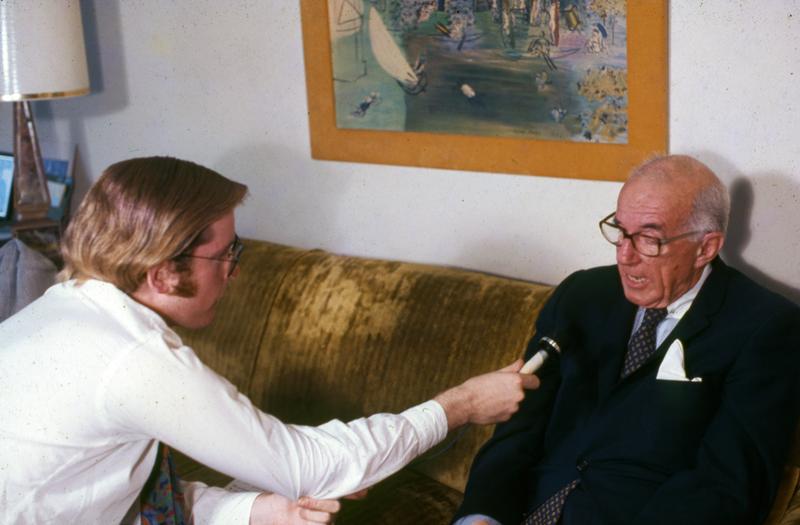
Douglas Cooper and George O'Brien met with Dr. Spock in his Manhattan apartment to discuss politics and pediatrics.
The Interview
Douglas Cooper opened the conversation by asking Spock to elucidate on the logical nexus between government and being a baby doctor. Spock pointed out that there was no use nurturing babies in a child-centered home only to have them incinerated in a nuclear war.
He explained that Johnson really let him down in 1964, when he called asking for Spock's support in the election, then turned up the temperature of the Vietnam conflict. He wound up with the FBI interviewing him in his apartment, and he discovered end that they were looking to "get something on him," and he wound up being sentenced to a two-year jail term, which was overturned.
George O'Brien went back to 1924, to reminisce about Spock's Gold Medal in the Olympics. In the same year, Spock's father told him that he needed to vote for Coolidge, and we edged into how he'd been brought up. He said his interest in upbringing stemmed from being rested in a child-centered home with good parental leadership.
Behind the Scenes
We had a bit of fun with Spock. As I was growing up, one of the older books in our den was Spock’s Baby and Child Care, which had sold more copies than any book except the Bible.
I grabbed the book as we left for the City, and when we walked into Spock's apartment, I handed it to him to sign. He was dumbfounded that we had a first edition and asked,"Where did you get that"?
I asked, "How do you think my parents brought up my older brother"? Spock picked up a pen and signed the book to me, with the message, "I'm very proud of you."
_______________________________________________________________________________________________________________
The Douglas P. Cooper Distinguished Contemporaries Collection (1967-1974) contains rare interviews with influential writers, statesmen, artists, songwriters, journalists and others who have left their mark on our culture.
